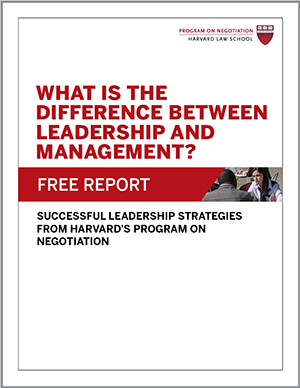
As the coronavirus outbreak in China exploded into an international pandemic, nations have largely struggled to confront Covid-19 in isolation rather than teaming up on global solutions. That “go it alone” approach has bred dysfunctional competition for scarce resources, a shortage of creative solutions, and enormous inefficiencies. Greater collaboration and coordination are needed to improve global leadership surrounding the crisis—and will benefit all types of organizational leadership.
Stuck with Their Screens
Grounded by the pandemic, international diplomats accustomed to flying from one capital to the next find themselves stuck at home negotiating via videoconference. The G7, the G20, the International Monetary Fund, and the World Bank have all been meeting online.
The inability to meet in person has doubtless played a role in the widespread failure of global leadership to address the pandemic. “There isn’t the same pressure to compromise you would experience if you were in the same room,” Martin Weiss, Austria’s new ambassador to the United States, said to Politico about video negotiations. “It’s easier to hide behind your own screen.” After her first European Union video summit on March 26, German chancellor Angela Merkel said she preferred “walking around the table” to find out if a proposal was popular enough.
A Call for Global Leadership
Beyond these technological pitfalls and likely cultural conflicts, many leaders have shown little urgency or interest in addressing the crisis collaboratively.
On April 30, United Nations Secretary-General Antonio Guterres complained that the international community was divided at a time when it was “more important than ever” to be united, Reuters reports. He expressed particular concern that developing countries were not receiving sufficient help from the international community to respond to the pandemic and address its economic and social impacts. According to Guterres, an appeal for $2 billion to help the most vulnerable nations was only half funded.
“The world is looking for global leadership,” Robert Yates, director of the British think tank Global Health Program at Chatham House, told CNN. “This is a time when you expect the leaders of superpowers in a very constructive way to help coordinate and structure the response.”
A Slow Response to a Fast-Moving Crisis
The United Nations Security Council has been singled out for lagging behind other international bodies in addressing the pandemic. The Council has struggled to reach agreement on a resolution that would emphasize the urgent need for international cooperation to fight the coronavirus and call for a truce in conflicts around the world.
“We’ve not seen the kind of summitry, urgency of meetings at the U.N. Security Council, heads of state coming together to organize, to figure out how we manage, for example, global supply chains,” Gayle Smith, president and CEO of the nonprofit ONE Campaign, told CNN.
The Security Council talks stalled in part because the Trump administration balked at references to the World Health Organization (WHO) in the agreement. The U.S. president had halted funding for WHO after accusing the organization of being biased toward China. The United States also refused to take part in an international WHO summit aimed at speeding up work on coronavirus testing, drugs, and vaccines.
Toward Better Global Leadership
The difficulty of responding to a rapidly transmitted, little-understood virus cannot be underestimated and reflects the challenging role of leadership in negotiation. But the failure of global leadership to address the coronavirus pandemic hinges on human biases that can be corrected, including tribalism, dysfunctional competition, and short-term thinking. To do better, world leaders will need to begin to absorb these cautionary lessons—and citizens need to hold them accountable for doing so:
- Take a long-term perspective. Competing for scarce resources and blaming others may (or may not) bring short-term political benefits, but will almost certainly fail to pay off in the long run. Negotiators and other decision makers will achieve greater long-term success and more ethical leadership by collaborating on joint solutions to shared problems.
- Capitalize on the benefits of group negotiation. To overcome dysfunctional competition, negotiators need to look for ways to enlarge the pie of value rather than just carving it up. Negotiation research suggests that group negotiations tend to be more successful than bilateral talks because of the rich array of issues negotiators bring to the table—issues they can trade off to create value.
- Adapt to our changed world. Diplomats and other leaders will likely need to continue negotiating virtually for many months to come. For this reason, they need to work on overcoming the pitfalls of distance negotiation and educate themselves on best practices for negotiating via videoconference.
What other strategies would you recommend to improve global leadership’s response to the coronavirus pandemic?




